
Related
Guests
- Seymour Hershaward-winning investigative journalist in Washington, D.C. He has been a staff writer for The New Yorker and The New York Times. He was awarded the Pulitzer Prize as a freelancer in 1970 for his exposé of the My Lai massacre in Vietnam. His memoir is just out, titled Reporter: A Memoir.
In 2004, investigative reporter Sy Hersh exposed the Abu Ghraib prisoner abuse scandal in Iraq that shocked the world. Shocking photos of U.S. military personnel humiliating and torturing Iraqi prisoners at Abu Ghraib sparked global outcry, as well as national hearings, investigations and finger pointing. We speak with Sy Hersh about his investigation, nearly 15 years later.
More from this Interview
- Part 1: Seymour Hersh: Media Today Must Cover Yemen & Trump Policy, Not Get Distracted by Tweets
- Part 2: Remembering the My Lai Massacre: Seymour Hersh on Uncovering the Horrors of Mass Murder in Vietnam
- Part 3: Investigative Reporter Sy Hersh: Working with Gene McCarthy’s Presidential Bid Shaped My Life Path
- Part 4: Sy Hersh: I Knew Richard Nixon Beat His Wife in 1974, But Did Not Report the Story
- Part 5: Sy Hersh: Henry Kissinger Must “Count Burned and Maimed Cambodian & Vietnamese Babies” in His Sleep
- Part 6: Seymour Hersh on Torture at Abu Ghraib & Secret U.S. Assassination Programs
Transcript
JUAN GONZÁLEZ: I wanted to ask you about, of course, another of your many exposés that received international attention: Abu Ghraib. Could you talk about how you got onto Abu Ghraib and the impact that that story had, not only in the United States, but across the Muslim world?
SEYMOUR HERSH: There was nothing that I wrote that wasn’t known and been reported by Human Rights Watch—a wonderful guy named John Sifton was just brilliant—Amnesty International, were writing—doing reports, talking about torture. It’s the same thing that I was reading in the '60s about Vietnam, that—by church groups who were writing books about it, that didn't make the media. And they were doing torture.
And I couldn’t find a—and in the fall of 2003, in December—what happened is, we won the war, we thought, quickly, and it turned out we didn’t win. What Don Rumsfeld, that man, called dead-enders—once we thought the war, in two months—what he called the dead-enders turned out to be the guys ready—the Baath Party people we thought we got rid of. And we were in a civil war, and we were being chopped to death.
In that December, I was in—I went to Damascus, and there was a two-star general. We grabbed most of the generals. Most of the generals who served in the Iraqi Army, we grabbed. We either killed them, or we turned them around and put them in the units that became killer units, or we used them for intelligence. This guy was missed. He was a linguist, a two-star. And I got him to Damascus. I think it cost 700 bucks for him to take a car—you could do it then. It was safe. There was a period, still then. He took a car from Baghdad to Damascus. He had a daughter in med school. He had to stay there, because she didn’t know English, and she wanted—the medical school was in Arabic, and she could do it. I don’t know what happened to him. And I spent four days with this two-star general, who was in signals intelligence and knew everything. And I’m debriefing him, writing—I don’t put anything in the computer.
And about the third or fourth day, he said, “And let me tell you about that prison, Abu Ghraib,” which I had read stuff about. He said, “My friends’ wives and daughters are writing and saying, 'You must come and kill me, because I've been defiled.’” You know, in that part of the world, they deal in shame. We deal in guilt here, in this part—guilt and denial here. But they dealt in shame. And they said they had been defiled. The GIs have done things to them. I’m not sure to what extent. “And you’ve got to come and kill me, because I’m no longer fit. I can’t be a wife, and I can’t—I can’t be a wife, and I can’t be married.”
And so, what’s going on? So I got into it. I mean, I knew then, maybe I could find a way. And then I heard about photographs. And then I heard that CBS had some photographs. There had been a report written, a secret report. And once I got that—I got it. I got the report, written by a brilliant officer named Antonio Taguba, who was fired over it, because Rumsfeld thought Taguba had to give it to me. How dumb is that? I didn’t see him. I didn’t know him for two years. I’m his dear friend. I have lunch with him. He’s a most wonderful man. I would go in a foxhole with him. And there are these people.
AMY GOODMAN: The general.
SEYMOUR HERSH: He just wrote a two-star report, that—he was ready for a third. He was a Filipino. He got out of college, weighing—five-foot-three, weighing 115 pounds. And three times he had asked the Army, as he was in a career, military career, to help pay for graduate school. And they said to him, “You don’t even speak English well. You know, you’re just some little yellow guy.”
AMY GOODMAN: We have a minute and a half.
SEYMOUR HERSH: So, what happened is, I got the report, and it was devastating. And it was all because he had told me how bad it was. And The New York Times published it. And CBS had the same photographs I had, and it had refused, for two or three weeks, to publish them. It was just a terrible story.
AMY GOODMAN: These are the photographs of torture of prisoners at Abu Ghraib.
SEYMOUR HERSH: Right. They had had it for two weeks.
JUAN GONZÁLEZ: And they didn’t run it.
SEYMOUR HERSH: But, you know, the people doing it, the reporters, Dan Rather and Mary Mapes, the producers, wanted to. But the suits stopped them. And so I actually worked out a deal, where they publish it, 60 Minutes on Thursday, before I did the report on Sunday.
JUAN GONZÁLEZ: The same reporters that ended up being fired, in essence, by CBS later.
SEYMOUR HERSH: It’s too bad. It’s not good to be good at your job in network television. That’s my theory.
AMY GOODMAN: You also wrote in your book, “There was a widespread understanding that those who died in interrogation were not to be buried, lest the bodies be disinterred later, but had to be destroyed by acid and other means.”
SEYMOUR HERSH: That’s what I wrote. I mean, what am I supposed to say? Yes, it was understood. This is early in the war. There was—excuse me. Do you think it stopped? Do you know how many warfare places we’re in right now? Seventy-six. The United States is conducting war in 76 countries now. If you don’t think assassinations are going on just as much, they are.
AMY GOODMAN: You also wrote about the use of fire ants.
SEYMOUR HERSH: I didn’t write. It was a story we didn’t publish, because it just—it was one of the fights I had with the editors. And he may have been right.
AMY GOODMAN: But the assassinations you’re talking about, in our last 15 seconds, and then we’re going to do Part 2.
SEYMOUR HERSH: Well, I mean, when you have the special operations forces operating all over Africa, if you think they’re telling the truth about what happened anywhere, in Mali or else place—it may be 70 different—we’re all over Africa. Nobody controls what they’re doing. It’s a big problem. And this president, of course, doesn’t know and doesn’t care, you know. But there are people there. There are people behind him who do care. But it’s going to be a long process.
AMY GOODMAN: We’re talking to Seymour Hersh, and we’re going to continue with a web exclusive at democracynow.org, the Pulitzer Prize-winning journalist who has written for The New York Times, The New Yorker, exposed the My Lai massacre. His memoir is just out. It’s simply called Reporter.

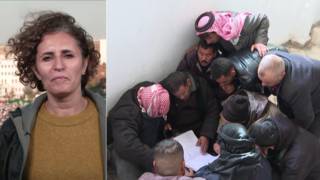
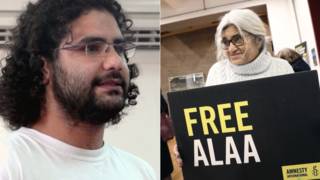
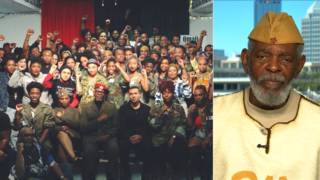
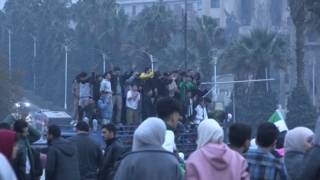





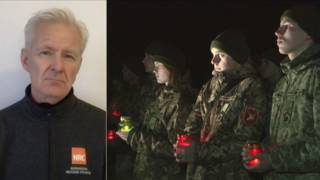

Media Options